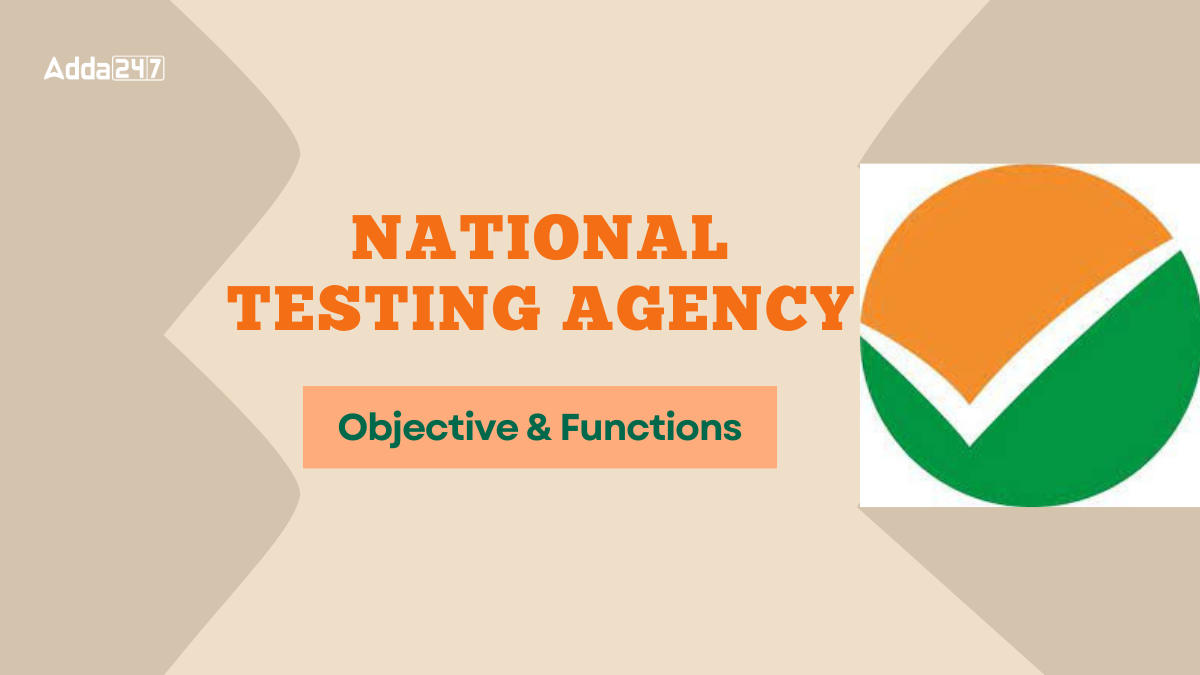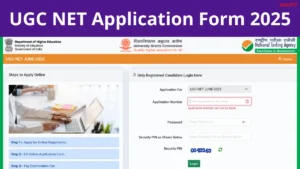Table of Contents
The National Testing Agency (NTA) stands as a pivotal institution in India’s educational landscape, entrusted with the crucial responsibility of conducting entrance examinations for higher educational institutions across the country. Established in 2017 by the Ministry of Human Resource Development, now known as the Ministry of Education, the NTA has since played a pivotal role in streamlining the process of conducting examinations and assessments.
What is National Testing Agency?
The National Testing Agency (NTA) is an autonomous and self-sustained premier testing organization established by the Ministry of Education, Government of India, in 2017. Its primary mandate is to conduct efficient, transparent, and international-standardized entrance examinations for admission to higher educational institutions across India. By utilizing advanced technology and best practices, NTA aims to ensure fairness and reliability in the evaluation process, thereby reducing the burden on students and institutions. Key exams conducted by NTA include JEE Main, NEET UG, UGC NET, and several others, covering a wide range of academic disciplines and professional fields.
Objectives of National Testing Agency
The primary objectives of the National Testing Agency are multifaceted and pivotal to its operational framework:
- Standardization of Examination Processes: NTA aims to standardize the examination process for various higher educational institutions and ensure fairness, transparency, and efficiency in conducting examinations.
- Reducing Exam Burden: By conducting multiple examinations throughout the year and using advanced technology, NTA aims to reduce the burden on students who previously had to appear for numerous exams conducted by different agencies.
- Adoption of Latest Technology: Embracing technological advancements, NTA incorporates modern techniques in examination management, such as computer-based testing (CBT), to enhance accuracy and reduce logistical challenges.
- Global Best Practices: NTA benchmarks its processes against international standards, incorporating global best practices in examination administration and assessment.
- Improving Access: The agency focuses on expanding access to higher education by conducting examinations in multiple languages and ensuring the geographical distribution of test centres.
Functions of National Testing Agency
NTA’s functions are designed to align with its objectives and ensure smooth conduct of examinations:
- Exam Conductance: NTA conducts major entrance examinations like JEE Main, NEET, UGC NET, CMAT, and GPAT, among others, ensuring fair and transparent evaluation.
- Question Bank Preparation: The agency prepares a robust question bank, ensuring a wide range of questions and preventing leakage.
- Result Declaration: NTA is responsible for declaring results promptly and ensuring their availability through secure online portals.
- Adopting Security Measures: To prevent malpractices, NTA employs stringent security measures during examinations, including biometric verification and CCTV surveillance.
- Continuous Improvement: The agency continually reviews its processes and incorporates feedback from stakeholders to enhance examination systems and procedures.
List of Exams Conducted by National Testing Agency
The National Testing Agency (NTA) conducts various examinations for admission to higher educational institutions and for recruitment purposes. Here is a comprehensive list of exams conducted by NTA:
- Joint Entrance Examination (JEE) Main: For admission to undergraduate engineering programs (B.E./B.Tech) at NITs, IIITs, and other Centrally Funded Technical Institutions (CFTIs).
- National Eligibility cum Entrance Test (NEET) UG: For admission to undergraduate medical and dental courses (MBBS/BDS) in India, including AIIMS and JIPMER.
- UGC NET (National Eligibility Test): For determining the eligibility of Indian nationals for Assistant Professor or Junior Research Fellowship (JRF) and Assistant Professor in Indian universities and colleges.
- CMAT (Common Management Admission Test): For admission to management programs (MBA/PGDM) in various B-Schools approved by AICTE.
- GPAT (Graduate Pharmacy Aptitude Test): For admission to M.Pharma courses and for awarding scholarships and fellowships to Pharmacy graduates.
- ICAR AIEEA (All India Entrance Examination for Admission): For admission to undergraduate and postgraduate programs in Agriculture and Allied Sciences.
- IGNOU OPENMAT (Indira Gandhi National Open University OPEN Management Aptitude Test): For admission to MBA and other management programs offered by IGNOU.
- NCHM JEE (National Council for Hotel Management Joint Entrance Examination): For admission to hospitality and hotel management courses at various institutions.
- DUET (Delhi University Entrance Test): For admission to various undergraduate, postgraduate, M.Phil, and Ph.D. courses offered by Delhi University.
- AIAPGET (All India AYUSH Post Graduate Entrance Test): For admission to various postgraduate AYUSH courses like MD/MS/PG Diploma in Ayurveda, Unani, Siddha, and Homeopathy.
- IGNOU B.Ed Entrance Test: For admission to the Bachelor of Education (B.Ed) program offered by IGNOU.
- JNU Entrance Examination (JNUEE): For admission to various undergraduate, postgraduate, M.Phil, and Ph.D. courses offered by Jawaharlal Nehru University.
- CSIR UGC NET: For determining eligibility for Lectureship (LS) and Junior Research Fellowship (JRF) in the field of Science and Technology.
- NEET PG: For admission to various postgraduate medical courses (MD/MS/PG Diploma) in India.
- NEET MDS: For admission to postgraduate dental courses (MDS) in India.
- NEET SS: For admission to Super Specialty courses (DM/MCh) in medical disciplines.
- AIIMS PG: For admission to postgraduate medical courses (MD/MS/MDS/DM/MCh) in AIIMS institutions.
- ICAR AICE-JRF/SRF (PGS): For admission to Doctoral degree programs in Agriculture and Allied Sciences and award of JRF/SRF (PGS) by ICAR.
- INET (Indian Navy Entrance Test): For recruitment of Officers in the Indian Navy.
- ICAR AIEEA-PG: For admission to postgraduate programs in Agriculture and Allied Sciences.
- ICAR AICE-JRF/SRF (Ph.D.): For admission to Ph.D. degree programs in Agriculture and Allied Sciences and award of JRF/SRF (Ph.D.) by ICAR.
- IIFT MBA (IB): For admission to MBA in International Business offered by Indian Institute of Foreign Trade (IIFT).
- UGC NET (Postgraduate): For determining the eligibility of Indian nationals for Assistant Professor only or Junior Research Fellowship (JRF) in Indian universities and colleges.
- CSIR UGC NET (Postgraduate): For determining eligibility for Lectureship (LS) only or Junior Research Fellowship (JRF) in the field of Science and Technology.
- AIIMS Nursing Entrance Examination: For admission to B.Sc. (Hons.) Nursing, B.Sc. Nursing (Post-Basic), and M.Sc. Nursing courses offered by AIIMS institutions.
- AIIMS B.Sc. (Hons.) Entrance Examination: For admission to B.Sc. (Hons.) courses in Nursing, Paramedical, and other related fields offered by AIIMS institutions.
- JIPMER Entrance Examination: For admission to undergraduate (MBBS/B.Sc. Nursing) and postgraduate medical courses offered by Jawaharlal Institute of Postgraduate Medical Education and Research (JIPMER).
- NDA (National Defence Academy) & NA (Naval Academy) Examination: For recruitment to the Army, Navy, and Air Force wings of the National Defence Academy and Naval Academy.
- IGNOU Ph.D. Entrance Test: For admission to Ph.D. programs offered by IGNOU.
- Indian Institute of Mass Communication (IIMC) Entrance Examination: For admission to various Postgraduate Diploma courses in Journalism and Mass Communication offered by IIMC.




 UGC NET Application Form 2025 Starts for...
UGC NET Application Form 2025 Starts for...
 Can DELED Qualified Candidates Apply for...
Can DELED Qualified Candidates Apply for...
 KVS Recruitment 2025 Out, Check Kendriya...
KVS Recruitment 2025 Out, Check Kendriya...














